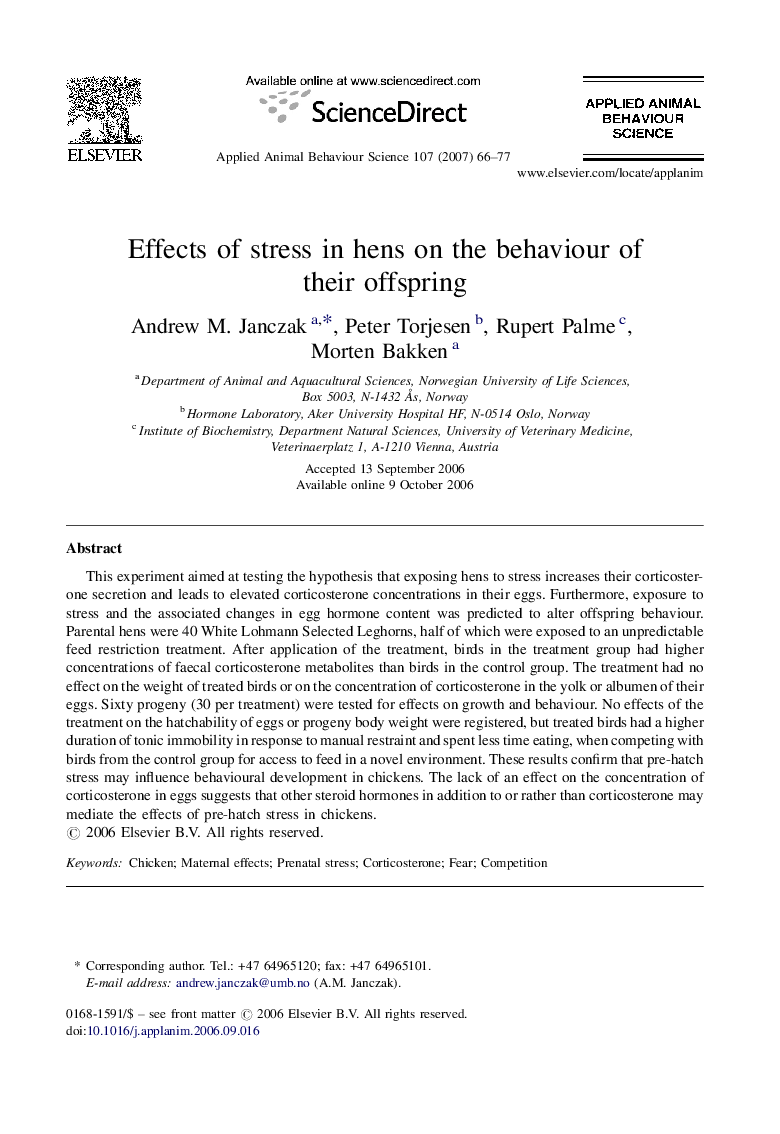| Article ID | Journal | Published Year | Pages | File Type |
|---|---|---|---|---|
| 4523935 | Applied Animal Behaviour Science | 2007 | 12 Pages |
This experiment aimed at testing the hypothesis that exposing hens to stress increases their corticosterone secretion and leads to elevated corticosterone concentrations in their eggs. Furthermore, exposure to stress and the associated changes in egg hormone content was predicted to alter offspring behaviour. Parental hens were 40 White Lohmann Selected Leghorns, half of which were exposed to an unpredictable feed restriction treatment. After application of the treatment, birds in the treatment group had higher concentrations of faecal corticosterone metabolites than birds in the control group. The treatment had no effect on the weight of treated birds or on the concentration of corticosterone in the yolk or albumen of their eggs. Sixty progeny (30 per treatment) were tested for effects on growth and behaviour. No effects of the treatment on the hatchability of eggs or progeny body weight were registered, but treated birds had a higher duration of tonic immobility in response to manual restraint and spent less time eating, when competing with birds from the control group for access to feed in a novel environment. These results confirm that pre-hatch stress may influence behavioural development in chickens. The lack of an effect on the concentration of corticosterone in eggs suggests that other steroid hormones in addition to or rather than corticosterone may mediate the effects of pre-hatch stress in chickens.
